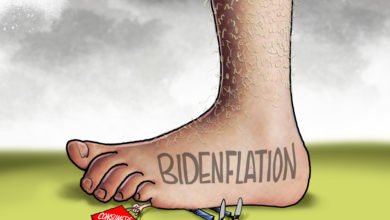Two Strategies for Making Better Financial Choices in 2024
The Aesop Fable known as The Ant and the Grasshopper offers a profound commentary on life and work. Its moral is at once striking and compelling, regardless of the reader’s background.
One version of the fable goes as follows:
One bright day in late autumn a family of Ants were bustling about in the warm sunshine, drying out the grain they had stored up during the summer, when a starving Grasshopper, his fiddle under his arm, came up and humbly begged for a bite to eat.
“What!” cried the Ants in surprise, “haven’t you stored anything away for the winter? What in the world were you doing all last summer?”
“I didn’t have time to store up any food,” whined the Grasshopper; “I was so busy making music that before I knew it the summer was gone.”
The Ants shrugged their shoulders in disgust.
“Making music, were you?” they cried. “Very well; now dance!” And they turned their backs on the Grasshopper and went on with their work.
The ants give a tough response, to be sure, but you can see where they’re coming from. The grasshopper wasted his time making music when he should have been working. It was rather audacious of him to ask for a handout after doing nothing to help himself.
In addition to the carelessness (some might even call it laziness) ascribed to the grasshopper, another reason people become needy is because they are profligate spenders. Thus, we could imagine an alternative version of the fable where the grasshopper is destitute because of his lack of thrift. Note how the virtue of the ants consists not only in their efforts to produce wealth, but also in their diligence to “store it away for the winter.”
The moral in both cases is that people who make poor choices should not expect the help of those who make better choices. While many recognize a human duty to help those in need no matter how they became needy, our sense of justice can’t help but be offended when those who are lazy and improvident ask for help from those who are industrious and frugal. If justice means anything, it means reaping what you sow.
The Grasshopper’s Struggle
Upon reading this story, everyone recognizes that it is better to be an ant. Nobody wants to be a grasshopper. And yet, many people routinely find themselves in the position of the grasshopper, facing hard times and asking for help such as charity or government handouts. Why is that?
One common response is that the people who are facing hard times are not really grasshoppers. True, they are asking for help, but they are in that position because of bad luck, not because of their own poor choices.
This is certainly true of many people, and private charity efforts should be made on their behalf. But bad luck does not explain every situation. There are many people who are struggling primarily because of their own bad personal choices. And for those people, the question remains, why don’t they make better choices?
Part of the answer seems to be a lack of self-discipline. Many people know what the right thing to do is, but they lack the willpower to do it. They know they should get a job and show up on time, they know they should stop spending money on frivolous things, but when it comes time to actually make those choices, the motivation just isn’t there.
So how can you turn that around if that’s you? Here are two ideas.
1) Consider the Cost
One thing that can be a significant motivating force is reflecting on the costs of your decisions. If you are considering indulging in laziness or lavish spending, take stock of exactly what you would be giving up by making that choice.
When it comes to a job, choosing to avoid work means sacrificing a steady income and the considerable degree of comfort and autonomy that comes with it. But it’s worse than that, because you are also losing your time. Time on the job is time investing in your knowledge and skills, things that will help you advance in your career. So the cost of not working today is not just the lost income. It’s also the lost opportunity to become competent and respected. Five years from now, with the right work ethic and attitude, you could be applying your skills and making stuff you’re proud of while working at your dream job. Or, you could be no farther along than where you are today. Think about that every time you have to make the decision whether to go to work.
There are also considerable costs to spending money on things you don’t need. Money saved collects interest, after all; and if you know anything about compounding, you know that a little bit of money saved today will make a huge difference down the line. So when you’re tempted to eat out or buy those latest clothes or that sleek car that you don’t really need, think about how much emptier your bank account will be for that purchase, not just today, but years later when the missed opportunity for compound interest amounts to much more than the number on the price tag.
The point is, reflecting on the costs of our choices can do a lot to knock some sense into us. So with every decision, ask yourself, “What future am I setting myself up for by making this choice?” “Is that the future I want?”
2) Form Better Habits
Many of our choices are not conscious decisions. Instead, they are things that we choose automatically, from habit. These habitual choices are often far more significant than the “big” moments and decisions. Who we are in the world is largely a matter of the daily and weekly rhythms that characterize our lives, not one-off events. As Jordan Peterson wrote in Beyond Order, “Your life is, after all, mostly composed of what is repeated routinely.”
The cool thing is, we get to choose our habits. If you are in the habit of sleeping in, you can get to bed earlier, set an alarm clock, and change that habit. If you are in the habit of going out for dinner or going to the mall on weekends, you can change those habits too.
One great way to get rid of bad habits is by replacing them with better ones. If you have a habit of going out for dinner, try having people over for dinner instead. If you’re in the habit of going to the mall on weekends, consider going for a hike instead (it’s a remarkably similar activity when you think about it, just with better scenery and fewer temptations).
When we are intentional about the habits we create, we can take control of our lives. So don’t just let life happen to you. Take charge. Exercise agency. Show your habits who’s boss.
Becoming an Ant
The natural inclination for most of us is to be a grasshopper, to avoid work and live beyond our means. But that doesn’t mean that becoming an ant is a matter of white-knuckling it our whole lives. By choosing to consider the cost and create better habits, we can make the path of the ant our default disposition, and over time it will become easy and natural as well as rewarding.
Not only are we materially better off by becoming an ant, we also get a real sense of pride and accomplishment. In fact, we might even indulge in a touch of righteous indignation when some grasshopper inevitably asks for a piece of our hard-earned stash. “Hey, I made deliberate sacrifices to get where I am!” we have earned the right to say. “Why should I take a hit to make up for your bad choices?”
Content syndicated from Fee.org (FEE) under Creative Commons license.



